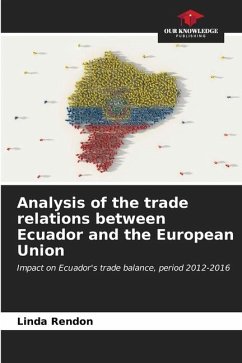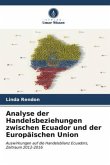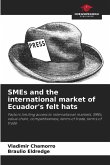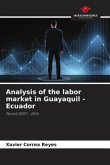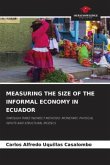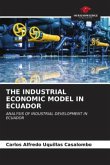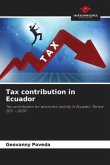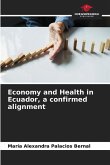This paper shows the economic scenario of Ecuador with the European Union in the period 2012-2016. For which we proceeded to analyze the evolution of trade activities that were maintained with the region under the Generalized System of Preferences that was in force until December 31, 2016 and with the entry into force of the Multiparty Trade Agreement on January 1, 2017. The results obtained show that at a general level the non-oil trade balance with the European Union is favorable, being beneficial for Ecuador, the main products exported to the European bloc in 2017 were: bananas, shrimp, canned fish, natural flowers, among others; exports to the bloc represent 30% of the country's non-oil exports.
Bitte wählen Sie Ihr Anliegen aus.
Rechnungen
Retourenschein anfordern
Bestellstatus
Storno

